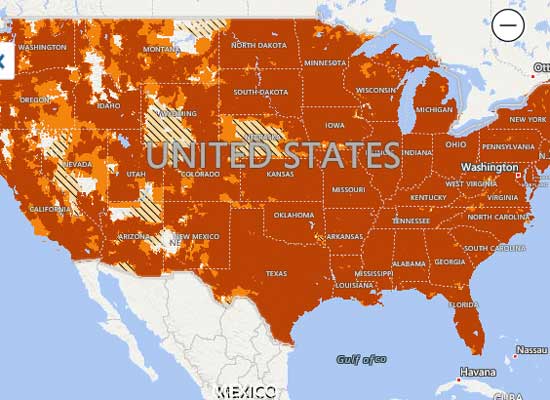We all reach a point in our lives where medical concerns or the risk of falling make considering a medical alert system a smart move, if not necessary. Medical alert systems can help you or your loved ones maintain daily independence with the assurance of help in the event of an emergency being available at the push of a button. The National Council for Aging Care reports that more than a quarter of adults in the U.S. age 65 and older will fall each year and having a way to call for help quickly is a necessity. The most successful stroke treatment is highly time-dependent, with only a three-hour hour window after a stroke in most cases. Any delay can reduce the recovery outcome.
Top 3 Medical Alert System Questions
What do you need to know before you buy a medical alert system? We have provided a list of three questions to ask before purchasing a medical alert system. Learning about the features of the many available systems will help guide you through finding one that best suits your needs.
- Is the system monitored?
- Verify monitoring is available 24/7
- Call center location (within the U.S or in a foreign country)
- Languages the call center personnel speak
- Services the call center can contact on your behalf
- Call center agent training
- Length of monitoring contract and additional costs such as activation fees
- Does the medical alert system include fall detection?
- Is the system landline or cellular based?
A monitored medical alert system senses a triggering event. These events can be a fall, or you press the call button. When this happens, the system dials a call center staffed with trained agents who respond 24 hours a day, every day. The call center agent then contacts the appropriate emergency service or designated family member to get help to the client.
Monitored systems usually provide the option of non-emergency help for the client as well, calling family members or friends on your behalf from a list you provide when you sign up for the service. For example, if you have been planting flowers and find you sat still too long on the ground and your joints stiffened and you need help standing up, you push the medical alert button. From there, the call center operator calls a local friend or relative from your call list.
Medical alert systems provide other layers of security for the senior citizen living alone A case in point would be if someone breaks into the home while the client is there. Pushing the medical alert button for help is faster than using a cell phone so that authorities can be on the scene sooner.
Monitored medical alert services come with a subscription for the access to call centers at any time of the day or night. The fees are generally reasonable for the safety you receive from the service. An unmonitored service has no monthly fee but provides far less. An unmonitored service will dial a preset number, such as a family member, but if there is no answer, this automated service is unlikely to call another number. Some unmonitored services call 911 if the primary contact does not answer. When this happens, you could have to pay for emergency services when you only needed some non-emergent assistance.
Important points to discuss with medical alert system providers:
Fall detection works via the circuitry and software inside the wearable medical alert device. Conditions such as speed, orientation changes, and impact severity caused by a fall are all detected by the wristband or pendant. If any of these conditions exist, the device activates to notify the call center on your behalf.

As we age, reflexes become slower which can lead to falls resulting in serious injury, especially head trauma. A senior’s coordination and reflexes may not be enough to stop them from hitting their head on furniture or the floor during a fall. Between 1993 and 2003 there was a staggering 55 percent increase in fatal falls for the elderly. Even a minor blow to the head can result in confusion or unconsciousness. Having a medical alert system with fall detection can save your life.
Fall detection is often an add-on feature of a medical alert system and may not be available on all systems within a company’s line. Fall detection monitoring may require an additional monthly fee. It is also worth noting that the technology behind fall detection is not infallible. Should you fall, it’s best to press the alert button rather than depend entirely on fall detection.
The original medical alert systems all worked off of the landline in the home, with a very limited range. Today’s landline systems have a more extensive reach, so you don’t need to be near the base unit. However, the range still cannot compete with that of cellular-based systems. If you use VOIP provided by cable and DSL companies for your home phone instead of a traditional landline, your phone setup may not be compatible with a medical alert system. Landline systems require power for the base unit, although they have backup batteries, so they work for awhile if the power goes out.
Cellular systems operate on the same wireless networks as mobile phones. The mobile network used varies between medical alert system providers. Verify that the system works with a cellular provider in your area before you spend much time gathering information on a cellular-based medical alert system.

The most significant benefit of cellular systems is that they allow you to travel relatively freely covered by your medical alert system. This protection provides peace of mind when you are out of the home. Mobile systems often come with additional features for a small fee, like GPS tracking in case of a remote fall and location warnings. Location warnings are used to notify a designated emergency contact if the client travels outside a specific area. Location warnings are especially useful for clients who may become confused in unfamiliar surroundings.
Cellular service maps are more accurate than ever before, but you can’t determine if slight changes in geography or localized interference will cause a problem for the medical alert system you choose until you test it. When discussing mobile medical alert systems, ask about a no-cost return policy should you find the system will not work in the areas you typically travel.
Bottom Line:
Once you’ve answered these important questions, you can choose a medical alert system that fits you or your loved one’s lifestyle. Are they active? Do they stay home most of the time? There are different styles and types of medical alert systems for each individual’s needs.


